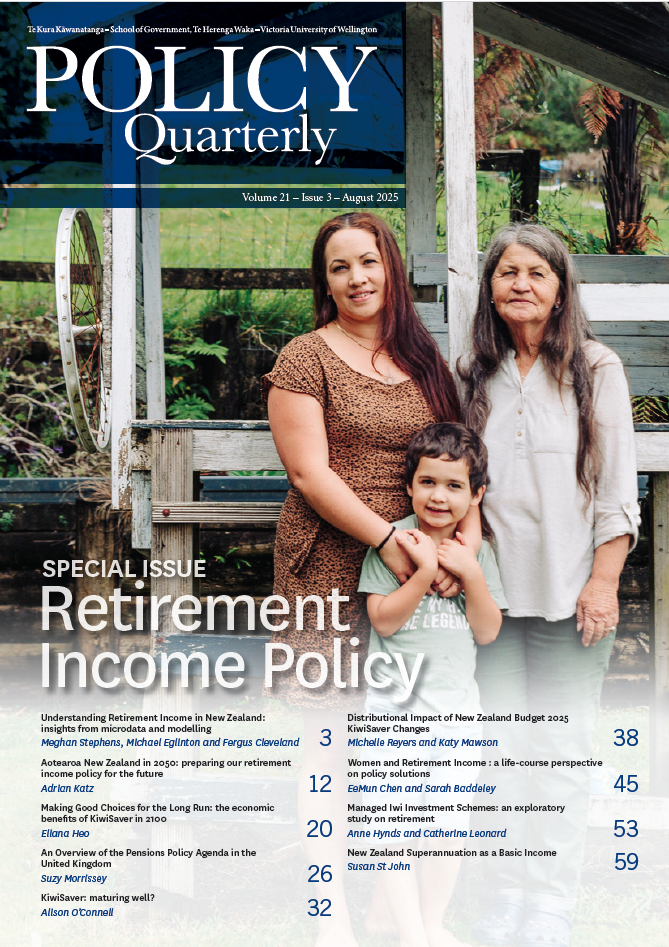Women and Retirement Income: A life-course perspective on policy solutions
DOI:
https://doi.org/10.26686/pq.v21i3.9939Keywords:
retirement, gender, women, life course, pension policy, ageing, employmentAbstract
Men’s KiwiSaver balances are on average 25% higher than women’s. Through a life-course approach, this article identifies six critical stages where policy interventions could improve women’s retirement income outcomes and reduce that gap: formal education and training, work, relationship status, parenting, housing tenure, and retirement. Drawing on data and evidence from New Zealand and overseas, the article argues that more coordinated interventions across these critical life stages could improve equity between women and men at retirement. The analysis reveals that while women and men start with similar incomes at age 15–19, the pay gap widens progressively through each life stage, creating cumulative disadvantage by retirement age.
Downloads
Downloads
Published
Issue
Section
License
Permission: In the interest of promoting debate and wider dissemination, the IGPS encourages use of all or part of the articles appearing in PQ, where there is no element of commercial gain. Appropriate acknowledgement of both author and source should be made in all cases. Please direct requests for permission to reprint articles from this publication to Policy-Quarterly@vuw.ac.nz.



